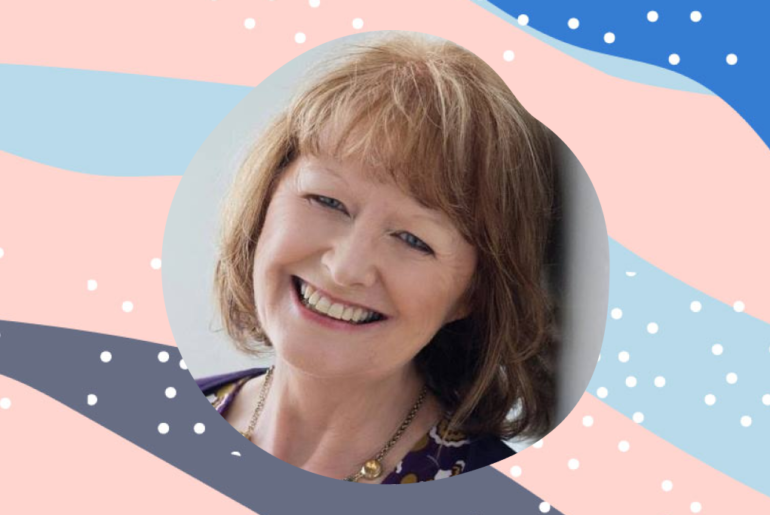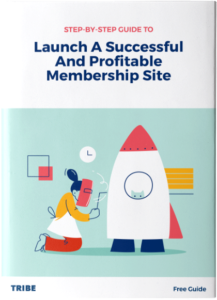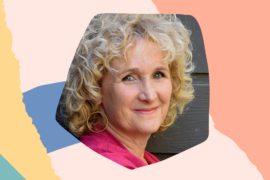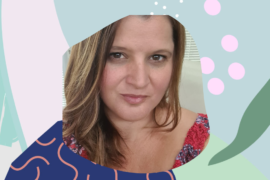Sharon Gaskin’s first job was in human resources. When she got asked by a coworker to help run a training course, she discovered that she really loved it, and it changed the course of her life. Soon, other trainers wanted help, and she started running events where trainers could come together, talk, and share the issues and challenges they face in life and business.
Now, at Trainer Talk, Sharon provides freelance trainers with resources to grow their business and feel connected. She gives trainers opportunities to collaborate rather than compete, develop and improve their businesses, and share experience and knowledge.
Today, Sharon joins the podcast to talk about how she broke into the training industry, why she closed down her side businesses to focus 100% on the Trainers Training Company, and what you can do to position yourself to succeed in your industry.
Key Takeaways
- The valuable things Sharon learned about herself through public speaking.
- What happened after Sharon proposed her membership business to stunned silence at a live event – and how just two committed members helped her build a community.
- The biggest reason Sharon believes that trainers fail – and the best piece of advice for anyone aspiring to succeed in any industry.
Free Give
FREE Guide – Launch & Grow a Profitable Membership Site
Ready to reclaim your time and attract more monthly paying customers? Our step-by-step guide will show you how to build a membership site that turns your passion into recurring profit. Click here to download!
Memorable Quote
- “Before we run, we have to walk, and before we walk, we have to put our shoes on.” – Sharon Gaskin
- “You can’t help the end-user unless you can first empower the presenter.” – Sharon Gaskin
Episode Resources
Transcript
Read The TranscriptShelli: Sharon Gaskin, welcome to the It’s a TRIBE Thing Podcast.
Sharon: Hello, Shelli. Good to be here. Thanks for having me.
Shelli: Thank you coming from all the way from sunny England. We appreciate you.
Sharon: Well, no, actually, sunny Wales, not England. There’s a difference.
Shelli: Oh sorry. My bad. Fair enough. You have a membership site called Trainer Talk. I’m wondering if you can share with us who you are, who you serve, and the origin story of how you got to be the person with this membership site.
Sharon: Absolutely, Shelli, delighted to. I’m Sharon. The name of my business is The Trainers Training Company. The name of my membership is Trainer Talk. Within my business and within my membership, I help freelance trainers to create and grow successful businesses. I guess that I’m serving freelance trainers, whether they be new into business or whether they’ve had their businesses for a number of years and they want to make their businesses more successful and profitable.
A bit about me, so how I got started. I’ve always been a trainer. Well, I was a trainer by trade, if you like, although that was something I kind of fell into. Many, many years ago, my first job as a new graduate was in HR, human resources. I went into HR because I thought it was about dealing with people, but I very quickly realized that it was more about shoving bits of paper around the desk.
When one day somebody within my department asked me to come and help her in a training room, run a training course, I said, “Okay, I’ll give it a try.” I really, really loved it and realized that I’d found my kind of passion because this was about dealing with people, whereas the HR job wasn’t. Then I was really lucky enough, about six months down the line, that particular person who’d asked me to help her decided to go off backpacking and travel around the world. She left and so I was the perfect person to take over her job-
Shelli: Now, if I’ll just jump in there for a quick second. In our pre-chat, the interesting part about that story is you were a graduate. You came out and you were working in human resources. They, out of the blue, said, “Hey, would you like to help us with training?” First of all, no experience with training. The second part of the story that’s really cool is they were going to be asking you to teach about sales. Can you talk a bit about that and what that felt like as a person who was thrust into the middle of all of that?
Sharon: It felt absolutely horrendous. I was so scared. I remember being in this room with sort of these really hard-nosed 40-year-old sales guys, and I was just this young girl. I remember many a times going into the toilets at break time and crying and going, “Oh, I think I’m in the wrong job.” It was just really awful, but I learned and I got through it. It was the kind of love of what I was doing that got me through, really, in the end.
Shelli: What did you learn about yourself from learning to teach and present in front of groups of people? I know they say that there are two major fears in this life; one of them is death and the other one is public speaking. What did you learn about yourself? Obviously, there was this huge transformation if you’re now a person who’s teaching people to present, going back to that little girl getting up in front of, first of all, 40-year-old men when you’re a young lady. What did you learn about yourself?
Sharon: Yeah. I actually learned that there was… I surprised myself, to be quite honest. Previous to having the job, I remember about a year, about 12 months previous when I was doing my final exams, I had to give a presentation. I was literally throwing up in the toilets beforehand. I was like, “Oh my God, I just can’t do this.” I guess there was something about it that just kind of felt right. I think standing up and presenting in front of a group of people is very different to when in a training course.
Really, in a training course, you can be just much more relaxed in a way. It’s much more a two-way thing rather than you just standing up there talking. It’s about bringing people along with you, helping them learn. You’re more of a facilitator of their learning, really, rather than somebody who’s just talking at a group of people. That’s the difference. Because of that, I realized that I was just a people person. I just love dealing with people. That’s kind of really what I’ve ended up doing in my business and in my community. That’s why I love it so much. That’s all I do; I deal with people. To be honest, it doesn’t even feel like a job most days. It’s amazing.
Shelli: That’s amazing.
Sharon: Yeah. Do you want me to carry on the story?
Shelli: Yes, please do.
Sharon: Yeah. I was doing that. I had a number of jobs in training after that and I was a very much corporate person. Then in 2002, I decided to step away from my very comfortable job and go freelance and start my own business. The reason why I did that, it was a relocation. Myself and my husband and our two children, who were very small at the time, had to move to a different part of the country.
I started my own business and in the first year of running my own business, made every single mistake in the book that I can tell other people about now. I didn’t how to develop a business. I was a trainer. I was a professional trainer. I came from a corporate background. Why on earth should I be expected to know anything about going out there and getting business and getting clients and things like that? I figured it out and then once I’d figured it out, I then went on to have a very successful training business; successful in terms of I had a really nice number of key corporate clients who were paying me a nice amount of money. That was great.
Then what happened really, Shelli, I was sort of going along doing that and life was pretty good. My business was successful, et cetera. Then a couple of things. Around about 2009, a couple of things really came together that made me have a complete and utter change of direction. The first thing that happened was that I kind of noticed that other trainers who were thinking about starting their own training businesses were asking me or picking my brains, coming to me and saying, “Oh, Sharon, you kind of do this and you do it really well. How do you do it? Tell me how to create my own training business.”
I just kind of lodged that. As a result of that, I went away and I wrote an eBook, “How to Launch a Training Business in 30 Days.” In this eBook, I poured everything that I’d learned in the last seven years of running my business from the standpoint of somebody who started off knowing nothing. Then I did nothing with it. I basically stuck it on a website. I had a one-page website that was called the Trainers Training company. I stuck it on there, did nothing with it for about six months because I didn’t— and we talk about this a lot in tribe, I know— at that point in my heart of hearts, I didn’t really believe in it. I didn’t think it would ever make any money. It was just an idea and I just kind of left it.
Then the other thing that happened in 2009 was my little boy, Ryan, he was around nine at the time. He was playing a lot of tennis and he was really quite good. He got an opportunity to go to a high performance center to do a lot of training. The LTA, who are the body who oversee tennis in Great Britain, they take the high performers and they put them onto these special programs and they want to develop them. He had this opportunity to go to this center at age nine. We, as a family, wanted to support him but I realized that I couldn’t do it anymore. I couldn’t run my business in the same way. I couldn’t be traveling around all over the country, delivering these training workshops. I had to reinvent myself.
I don’t know whether you remember around 2009. It was really when the online world was just getting started. All of a sudden, we had email marketing and we could do webinars, although in those days they were called instant teleseminars. You didn’t actually see people, but you could talk to them on the phone while they were joining your session. There were all these things coming on board. I just thought to myself, “Gosh, maybe this is it. Maybe I really need to get myself online, and I need to find some way of creating a business which revolves around working from home.” Then I thought, “Oh, hang on a minute. I’ve got this. I’ve got it. I’ve got this thing on this website. I’ve got that book thing.” I went and I took this massive decision, Shelli, which did feel really right. I closed my other training business down and just concentrated 100% on The Trainers Training Company, on this one-page website. It all started from there.
Shelli: That’s where it starts though, right?
Sharon: Sorry, did you…? Sorry, I missed that one.
Shelli: No. I said that’s where it all starts for most people. Before we run, we have to first walk, and before we walk, we have to put our shoes on. Good for you.
Sharon: Yeah, exactly. It all started there. Then what happened? I then spent my first year, I was running workshops for trainers to help them create their businesses. Then I got a big mailing list and people were getting to hear about me. Then I decided that I would run these one-day events called Trainers Talk Live, because I really wanted to create a safe space for people where they could come together and share their issues and challenges.
I don’t know whether it’s like this in Canada, but a lot of the networking events that we have in the UK were very business. They were about people kind of thrusting business cards at you and trying to sell stuff. I didn’t want that. I wanted to create an event where freelance trainers who were all going through the same issues and challenges could come together and say, “Do you know what, I’m having a bit of a rubbish day here.” Or “My business isn’t going really well. I need some help.”
I started to run them, and people liked them and they started to come along. I was running those. I started maybe doing them originally twice a year, and then they developed into four times a year. That was all fine and dandy and all the rest of it. Then around about 2015, I had a bit of an epiphany. I was running these events for trainers, and people were coming to them, and people were enjoying them, and I was enjoying running them. Me being a people person, I was getting that real nice fuzzy feeling because I knew I’d run a great event, et cetera. What I wasn’t doing was really inspecting how much money I was making from them. I discovered, to my horror, at the end of 2015 that I really wasn’t making… Well, I made about 1,000 pounds from four events a year, which was nothing for the amount of work that I was putting into them.
The other thing that was missing, Shelli, was I had a real vision and still do have a vision— although a lot of the vision is now coming together— but I had a vision to create a community. What was happening, people were coming to these events, but I realized that you can’t create a community without commitment. I wasn’t getting that commitment because people just weren’t coming back not because they didn’t enjoy the event, but because trainers being trainers, they’re very much driven by, “Well, I’ll come along to that if I haven’t got any work on that day,” because work and client work always comes first.
I decided at the end of the 2015 that this was going to stop and it had to change. I decided I would turn it into a membership and I made peace with myself because I thought, “If I don’t get any members then there’s going to be no Trainer Talk anymore because I can’t continue to run this as a charity.” I kind of felt like I was subsidizing people’s days out. I decided it was going to change and it was going to be a membership. The price was going to go up and people would come and join and these live events would be included in their membership. I kind of thought, “Well, if I can get people to pay for the whole year, they’ll show up then because they paid for it.”
I remember at the end of 2015, at the last Trainer Talk Live of the year, I stood up and I made a presentation to everybody in the room who was there at that event. I told them that as from next year, things were going to change. It was going to become a membership and you couldn’t just come to these events anymore unless you were a member. I stood up and it was one of the scariest things that I’ve ever done. I stood up there and literally, I could feel my legs shaking. Anyway, I did it and I told them and there was kind of like this stunned silence. You know if you’ve ever made a presentation and you just feel like you want the ground to open up and swallow you? That was kind of like me. There was a stunned silence. I could tell that from people’s body language that this hadn’t gone down very well.
Then from the back of the room— and it literally was from the back of the room— one person stood up. That person was a guy called Paul Harris, who is still in my membership today and he’s one of my ambassadors. He stood up, put his hand up and he said, “I’ll join.” The next thing, another person stood up and that person was Kate Young, who’s also still one of my members and is also one of my ambassadors. She stood up and she said, “I’ll join.” I didn’t say it but inside I was thinking, “Oh God, I love you. I love you.” Then I thought, “Right, okay. I have to do this now. I have to do this because I’ve now got two members, so I can start from there.”
Do you know, Shelli, that was the one thing that then just made such a massive difference because the missing ingredient was commitment. Once I got commitment from people then I created a community. What happened— which was what I wanted to happen— was that people kept coming back. They kept coming back again and again, and because they kept coming back then the relationships were created. That’s when, all of a sudden, we have this community. That’s where it all started.
Shelli: Well, that’s so brilliant because to your point, not everybody is a natural trainer. For example, I would suspect that many of the people you deal with, and definitely many of the people that we encounter, they’re an expert in their field of expertise. It means whatever their niche is or whatever their knowledge or skillset is, they are very well-versed in that but not always necessarily well-versed in how to teach that.
Sharon: Yeah.
Shelli: By doing what you do, by virtue of that, you’re enabling these people to get their gift out into the world. That, my friend, is deeply profound.
Sharon: Yeah.
Shelli: I also love what you said about your son, and about the ability to have a membership site and to have the freedom to not be nailed down to having to physically be at a specific geographic location allowed you to support your son and his gift in a completely different way.
Sharon: Yeah, absolutely. It was phenomenal. I’ve just been so lucky to do that over the years. My business and the membership— because the membership is only a part of the overall business— it’s grown in a way that I never could have envisaged, really. What it’s allowed me to do is… I count my blessings every day for all this wonderful technology that we have to enable us to create these amazing businesses online, and work from home, and support our families while having fun at the same time. It’s amazing. I love it.
Shelli: I really honor the fact that you are teaching people how to teach people. The whole theme of this chat has been your love of people and your ability to see people and help people. Really, it is such a gift to be able to give others the gift; to be able to stand up in front of a group of people, whether that be a digital stage or an actual stage, and give a presentation in a way that empowers them. You can’t help the end user unless you can first empower the presenter.
Sharon: Yeah. I just want to clarify, though, that I don’t actually teach. The membership doesn’t teach people how to be a trainer. What the membership teaches and what I teach in my business is how to create how to get clients, how to create a successful training business. Most people who are freelance, most trainers who are freelance and most trainers who have training businesses, they’re usually really good at the training side. They love the bit where they’re in the training room, doing their thing just like how I used to do, and helping people learn and all that stuff.
What they’re not very good at, and most of them are actually really scared of, is the bit where they have to go out and get clients for their business. Nobody ever teaches them how to do it, you know? Why should they? Before they go freelance, they were all in organizations, in the classroom and delivering trainings. Nobody ever gives them those business skills. That’s what I do in my business and that’s what we do in the membership.
Shelli: What’s the best tip that you could offer people who are listening that they would get if they came to work with you through your business?
Sharon: What’s the best tip?
Shelli: If you were to give people one tip about something that would help them right out of the gate.
Sharon: Oh my goodness, me. The biggest tip is to specialize as a trainer. So many trainers fall into it and because they’re so scared that they won’t get any work if they specialize in one thing, what they do, they end up being what I would call jobbing trainers who just put their hand up and go, “Oh yeah, I can do that.” “Oh, I can train on that.” “Oh, I can deliver that as well.” Nobody wants that. Organizations, when they’re hiring trainers to come into their businesses, they want specialists. They want people who are really, really credible. You can’t get that credibility if you are training in lots and lots of different things. That would be my number one tip for any trainer who wants to have a successful business. That’s one of the things we teach.
Shelli: Genius. Laser-focused.
Sharon: Laser-focused, that’s for sure.
Shelli: Thank you so much for hanging out and spending the time with us. This has been really enlightening. I want to make sure that if people are looking for you online, we can hook you up with where they can find you.
Sharon: Yeah, absolutely. I have two websites. The first website is the Trainer Talk website, which is http://www.trainer-talk.co.uk/. Then the other website is the Trainers Training Company, so https://thetrainerstrainingcompany.co.uk/. I’m all over social media. Look me up on Facebook: Sharon Gaskin, LinkedIn: Sharon Gaskin, et cetera. You’ll find me. I’m everywhere.
Shelli: Genius. Thank you so much, Sharon. You are a gift.
Sharon: You are welcome, Shelli. Thanks for having me.
END
To learn more and get access to all episodes, visit our podcast page!






